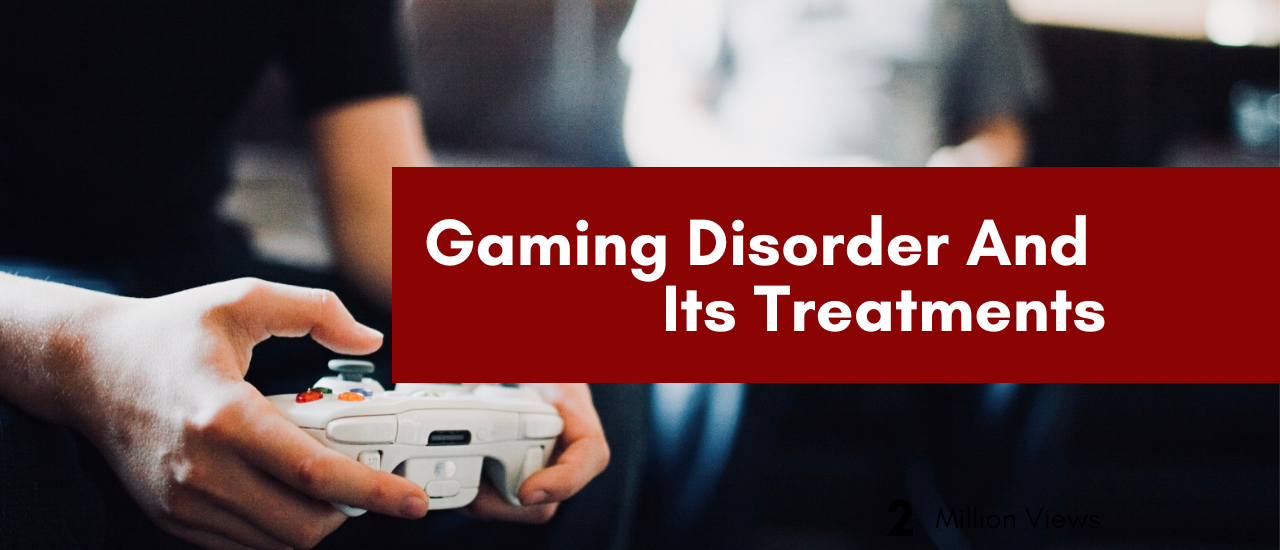


Internet gaming disorder refers to the obsessive and compulsive misuse of video games and online games as a form of stress relief. It results in prioritizing gaming over daily activities and interests and in continuing to game in spite of any potential drawbacks. In other words, gamers are aware of the need to put down their devices and take care of other daily responsibilities, including attending social events or getting enough rest, but many find it difficult to restrain them. Similar to the more common internet and smartphone addiction, internet gaming disorder may be considered a type of technology addiction. The condition is frequently referred to as online or video game addiction.
Even while the majority of the symptoms described appear to have only temporary impacts on those with gaming condition, if the addiction is not treated, they may develop into long-term repercussions. For instance, while skipping sleep and eating poorly may initially cause short-term exhaustion, hunger, or weight gain, if these symptoms persist, they might develop into much more serious sleeping disorders or diet-related health difficulties. Additionally, gaming disorder has negative effects on finances, employment, and education. The expense of the equipment and the required high speed internet might add significantly to the financial strain.
According to numerous researches, mental health conditions like depression, anxiety, and stress as well as internet gaming disorder may co-occur. Users who struggle with these underlying problems may develop the habit of playing video games excessively because it allows them to escape from the uncomfortable emotions they experience; in some cases, this may be the only thing that helps them feel better.
For at least a year, a person with a gaming problem will exhibit the following symptoms:
These internet gaming addiction habits must be so extreme that they have an impact on a person’s:
Video games that support online multiplayer are played with other players. These games are particularly compelling since players can create and briefly assume the identity of an online character and there is no obvious conclusion. The multiplayer environment enables all users to establish connections and a community that at times seems like their home and place of acceptance.
Standard video games have a clear objective or mission and are made to be played by one person. The need to fulfill the objective, surpass a high score, or surpass other predetermined criteria is what drives the addiction to video games.
The intensity of each person’s gaming addiction is determined by an evaluation of that person as a whole. The goal of treatment is typically to assist the patient in quitting gaming altogether because, for someone who is prone to gaming addiction, even a modest quantity of gaming can gradually worsen into a problem.
The goal of treatment is to assist someone who has a internet gaming addiction to:
There is currently no established treatment for internet gaming disorder because it is a relatively new diagnosis. Treatments for other addictive behaviors, such as gambling addiction, may, however, also be applicable to gaming problem. Therapy, medication, and self-help groups may all be used in the treatment of compulsive gambling.
By practicing their communication and assertiveness abilities, the patient will learn how to communicate with others during this treatment.
Family members might need to participate in some areas of therapy if the internet gaming is negatively affecting interpersonal relationships.
People should examine their talents and abilities, make objectives for themselves, and engage in activities they enjoy other than gaming in order to prevent excessive gaming.
This entails teaching the individual of gaming practices and their impact on mental health.
Through this therapy, patients can better understand who they are, develop self-esteem, and sharpen their emotional intelligence.
Body Dysmorphic Disorder DSM-5; Causes & Signs
Chicken Pox Blisters: Major Signs, Causes & Risk Elements
Frozen Shoulder: Causes, Symptoms & 5 Best Exercises